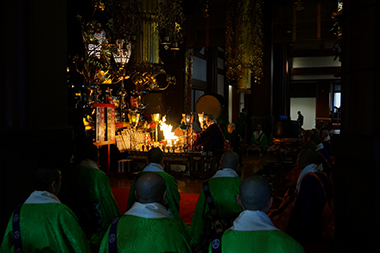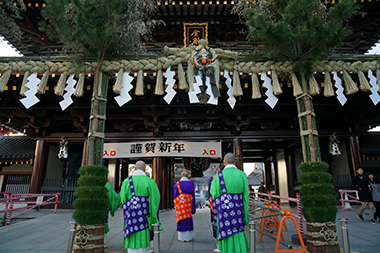At midnight on New Year's Eve, during Joya no Kane (bells ringing out the old year), the first Goma-Kito (the rite of burning) of the year will be conducted. Many New Year’s visitors pray for greater purification and good fortune for the New Year.
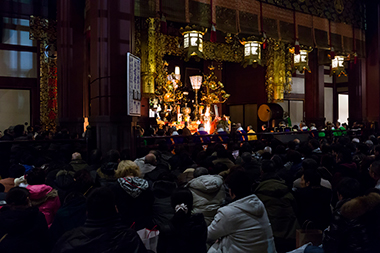
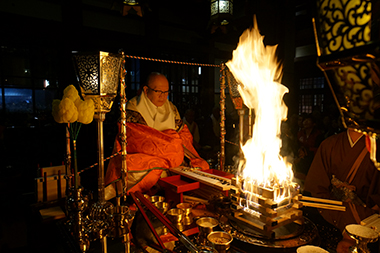
On the Setsubun day, the traditional end of winter, Mamemakishki, a bean-scattering ceremony, is conducted, and it makes an impressive sight. The ceremony starts with the shout “Fuku-wa-uchi” (In with fortune) and guests throw the fortune beans (roasted soybeans) from the stage simultaneously.
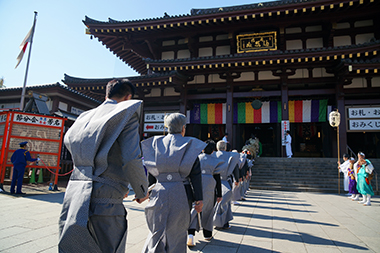
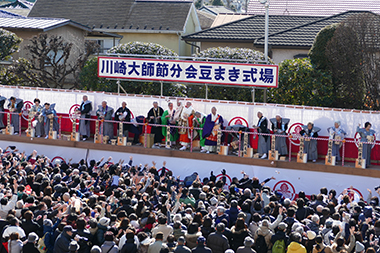
Dai-Hannyakyo (Great Perfection of Wisdom Sutra), which consists of 600 volumes in total, is read with resonance by 12 priests with accompanying movements simulating the opening and waving of fans.
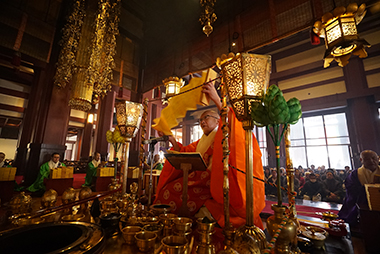
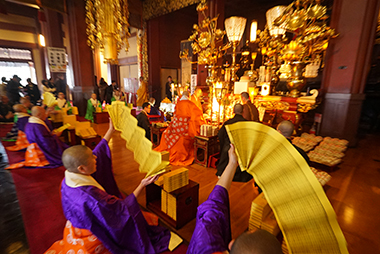
A memorial service is conducted to celebrate the birthday of our principle image, the priest Kobo-Daishi Kukai, born on June 15 in 774. At the Kawasaki Daishi, a memorial service is held in mid-May instead of June to avoid the rainy season.
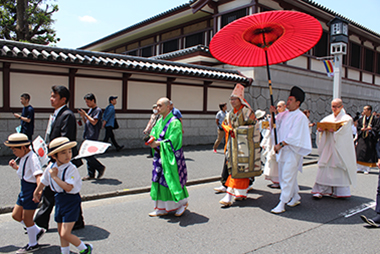
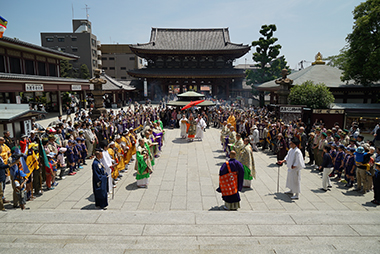
Kawasaki Daishi Furin-Ichi (Wind-Bell-Market) is held in July and features various kinds of wind chimes collected from all over Japan. Furin-Ichi is known as an indicator of summer in the temple, and people enjoy listening to the refreshing tinkle of the bells.
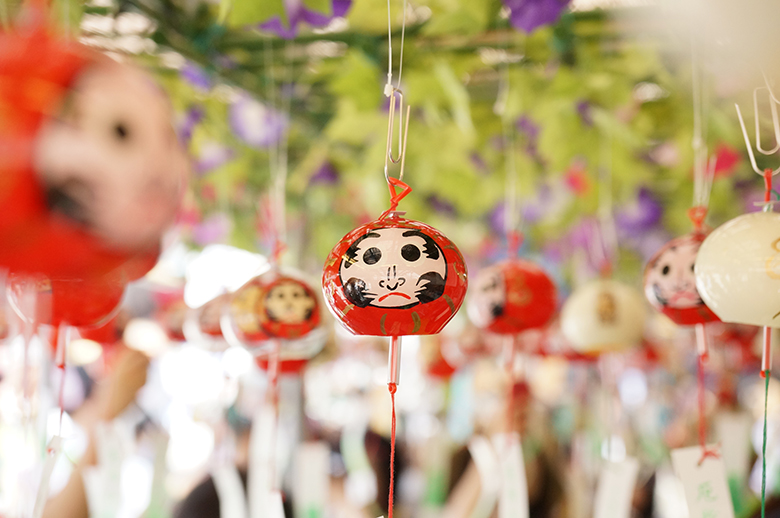
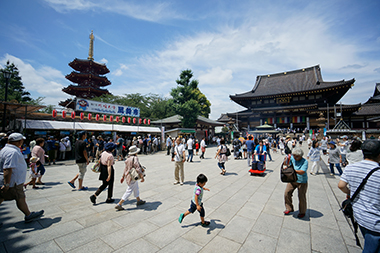
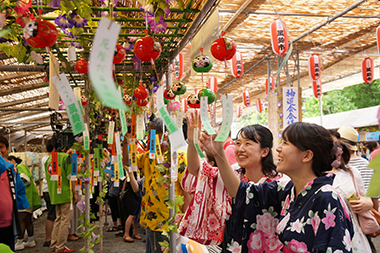
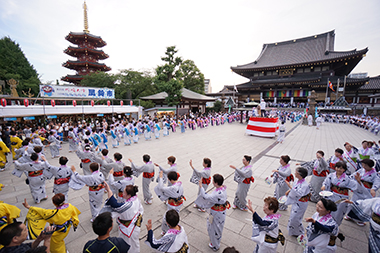
The rite of burning talismans and charms on the last festival day of the year is to honor them for protecting people throughout the year.
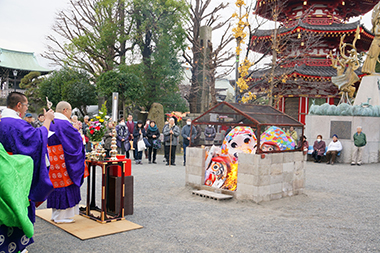
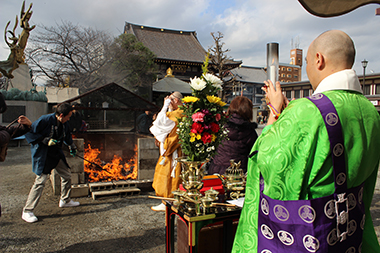
Susuharai, the year-end cleaning, is conducted in December. Long bamboo brooms are used to sweep away the soot and dust accumulated during the year to be ready for the coming new year.
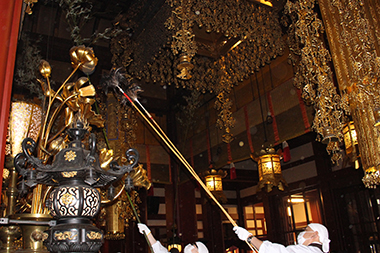
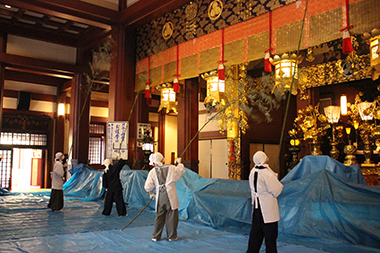
Kechigan Ohgomaku, the last rite of burning of the year, is held on the evening of December 31. After the last rite, priests walk through the halls of the temple chanting sutras to conclude the year.
